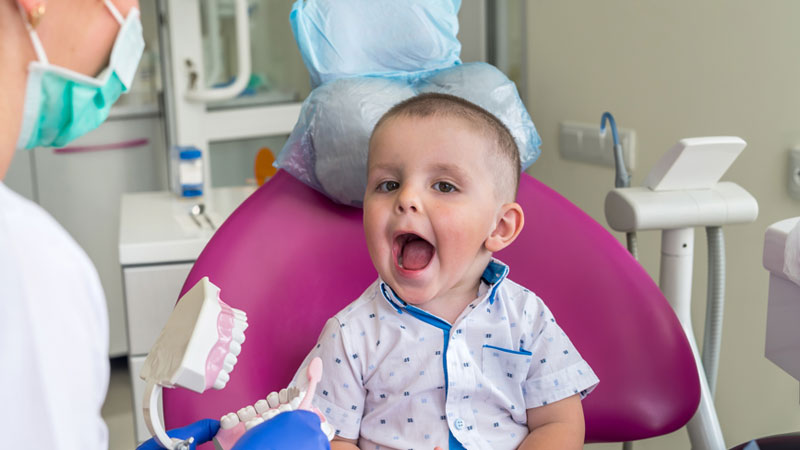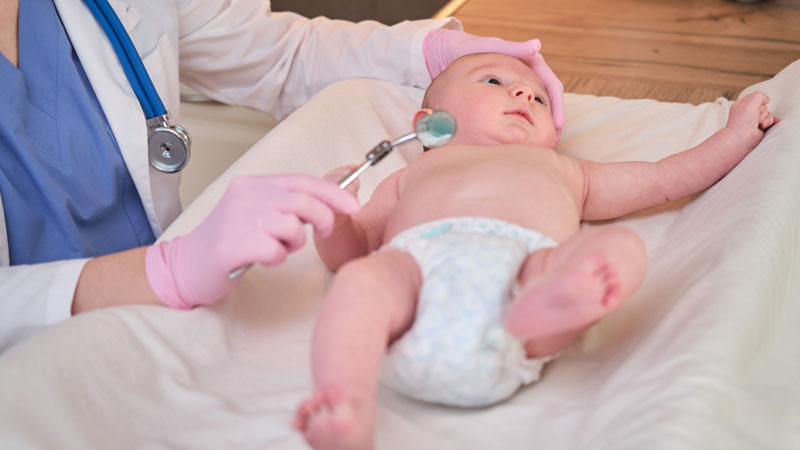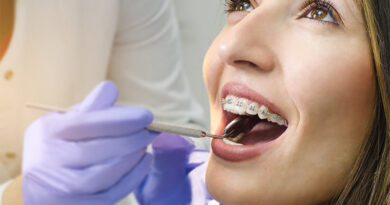When Is The Right Time To Start Your Kids’ Dental Care?
As a parent, you get to share in so many ‘firsts’ with your child: their first word, school day, and even dental visit. You sure want your child’s first visit to the dentist to be enjoyable and memorable, setting the tone for lifelong healthy behaviors.
How early must I take my child to the dentist? The American Association of Pediatric Dentists recommends that children get their first dental health checkup when their baby teeth appear or by their first birthday. Though early, this appointment is necessary to check for gum and tooth decay and proper tooth eruption and development. Baby teeth can occur as early as six months, so schedule their first dental visit soon!

Isn’t it amazing how easily you can avoid tooth decay? A routine checkup often prevents cavities and tooth decay in children as young as three or four years old. So, start them young.
What To Expect During The First Visit
The first step is to make your youngster feel safe. Encouraging children to collaborate can minimize their nervousness (and the parents’.) What else can you expect from the appointment?
- Teeth brushing discussion ((how often, which toothbrush, and how long to do it);
- Conversation addressing teething or thumb sucking concerns;
- Nutritional tips for maintaining teeth healthy and strong; and
- An evaluation of your child’s bite and teeth alignment.
While a complete cleaning may not occur on the first appointment, this first encounter will help your kid feel at ease in the dentist’s chair. Expect the dentist to examine your child’s teeth, gums, bite, jaw, and other oral concerns.
Consult your child’s pediatric dentist for specific recommendations. A pediatric dentist can help you, and your kid develops good oral habits for a lifetime.
If your child needs a dental checkup, the team at Alligator Pediatric Dentistry goes above and beyond to make your child’s first dentist visit fun and comfortable.

Your Baby’s First Dental Visit Preparation
It’s crucial to carefully clean your baby’s gums with a towel (or gauze) and water, especially after feeding. Use a soft toothbrush made for children’s mouths, but wait until your child is two years old to start using fluoride toothpaste. The Centers for Disease Control and Prevention (CDC) claims that fluoride consumption during tooth development can induce fluorosis. Fluorosis can produce tooth stains, discoloration, and in severe cases, pits. Your child will be more relaxed at their first dentist visit if you start early with gum cleaning.
- Show short clips of videos to your kid regarding first dental visits.
- Complete the paperwork ahead of time to avoid being stuck in the waiting room.
- Come up with a list of inquiries regarding oral hygiene for your baby.
Lastly, ask your dentist questions. Remember that your attitude toward dental visits may differ from your child’s. If you have dental phobias, don’t share them with your child. Parents can help by being calm in the dentist’s exam room. Fear in parents can cause anxiety in children. Prepare yourself as well.
Notify The Dentist Of Your Child’s Any Behavioral Issues
To prepare for your child’s first dental visit, give the dentist a copy of your child’s medical history. Tell the dentist if your child is worried, scared, stubborn, or defiant in specific settings. You may also want to warn your dentist of any behavioral or temperamental difficulties if necessary.
Generally, these are the primary age-related issues:
- Detachment from parents is common in infants under one year of age. Most infants will stay on their parents’ laps during the dental exam to avoid this.
- By three years old, most toddlers can handle being apart from their parents for a short time. They may not cope well with being apart during a dental operation like a cavity filling. So, be in the room for cleaning and exam.
- Four-year-olds. By four years old, most kids can be separated from their parents for dental tests and treatments. However, parents should be present to hear any input from the dental professionals.
Make Good Connections
Introducing your child to the dentist early on will educate them that visiting the dentist is nothing to be afraid of. Many kids are scared of going to the dentist, but you can help your child form pleasant connections with the dentist’s office.
Since early experiences can shape a child’s life, you should help them form positive associations with the dentist. Initial dental exams for children do not include much prodding or poking. Instead, the sessions intend to help your youngster get acquainted with the clinic.
During the first few visits, your kid will get to know the staff and build trust. The dentist will only examine your child’s mouth once they are relaxed. This excellent dentist-patient interaction will help your youngster relax in the future. And maybe they’ll start looking forward to their dental visits.
Tips For Making Your Child’s First Visit Fun
- Avoid scheduling during naptime. Instead, arrange the appointment after your child has slept well.
- Make your child understand that going to the dentist is pleasant. Use encouraging language and a cheerful tone when referring to the dentist and in the exam room. Encourage your kid to cooperate during the exam.
- Prepare a small breakfast and brush your child’s teeth before going to the dentist. So, there’ll be no more hunger or fussiness during the exam.
- Go to the park after the dental examination as a prize for doing well.
Boredom is a major issue for kids. That’s why most dental offices have TVs in every chair with amusing films and movies. Kids can watch their favorite shows while waiting to see the dentist.
Don’t worry if your child isn’t happy at her first dentist visit. A good pediatric dentist has seen it all and won’t be thrown by a fussy kid. It would help to do whatever’s possible to encourage them to return for a second visit.
Conclusion
By 12 months of age or when their first tooth appears, whichever comes first, children should have their teeth checked. This introduces your child to the dentist. It also allows you and your dentist to discuss your child’s oral health needs. Best of luck!



